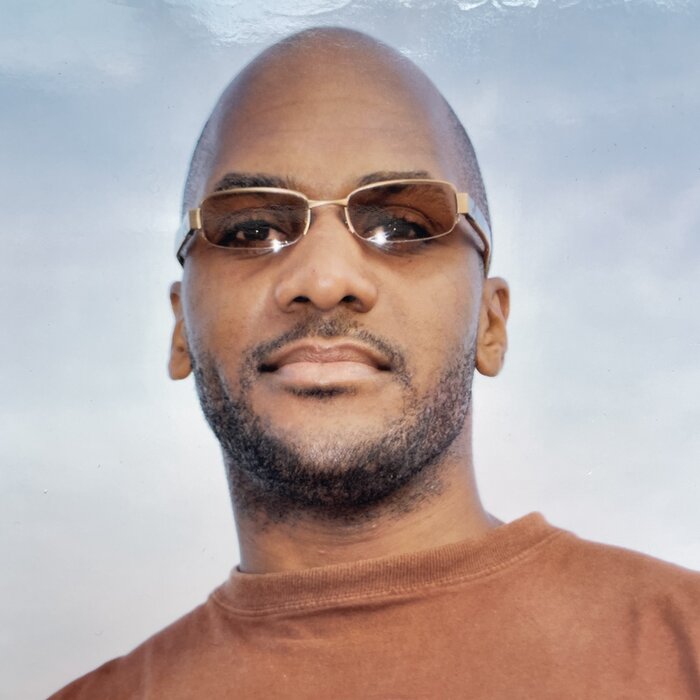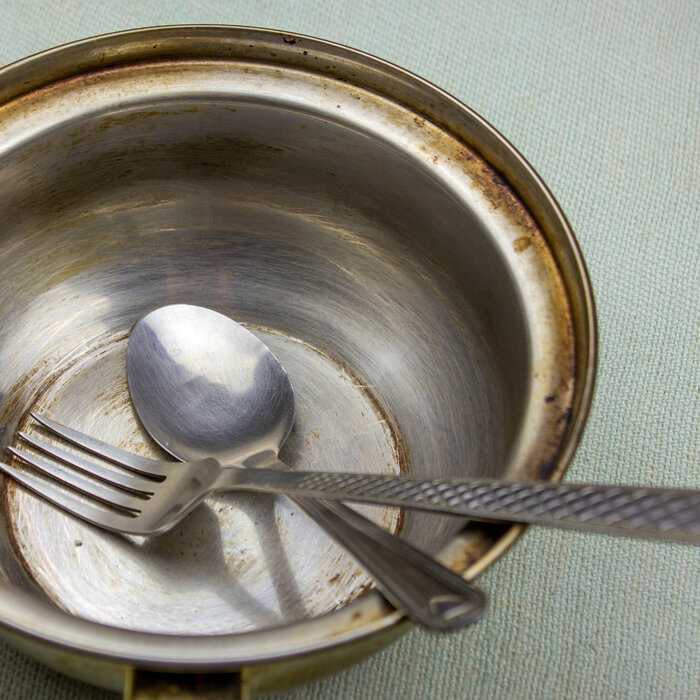Hunger strikes are an act of very last resort for prisoners who feel they are being treated inhumanely, and there is either no other way to challenge it or the grievance system is dysfunctional and/or biased. Perhaps the most famous example is the 1981 hunger strike by members of the Irish Republican Army as they fought for independence from England, chronicled in the book Ten Men Dead.
And the desperation that drives its use continues: In 2014, I wrote about use of the tactic by Palestinian political prisoners in Israeli custody, and this fall, detained Egyptian-British citizen Alaa Abd el-Fattah staged a hunger strike during COP27 to try to bring attention to his plight. Hunger strikes are waged by prisoners incarcerated by the United States as well, both by people held for decades in Guantanamo and those in state, federal and ICE (immigration) prisons.
In this interview, I focus on one of the most recent cases, a lone hunger strike waged by Antonio Oesby, a DC resident incarcerated in the federal Bureau of Prisons system (since the District does not have its own prison).

It’s easy to focus on the often-devastating health consequences of serious hunger strikes, so evident in Antonio’s story, and thus label the use of this tactic foolish and self-destructive. But I invite you to instead focus on the common thread in all the stories: the lack of an effective alternative method to obtain relief and change harmful practices.
As More Than Our Crimes and the Washington Lawyers’ Committee for Civil Rights and Urban Affairs write in our report Voices From Within, “the grievance system is dysfunctional and grossly inadequate to address harms to incarcerated persons in federal prisons. Retaliation is deeply ingrained in the correctional subculture; in fact, it may well be the normative response when a prisoner files a grievance.”
What pushed you to take such extreme action?
In 2020, I was approved to transfer from a medium- to a low-security institution based on my good behavior and participation in programming over two decades. Thus, I moved to FCI Danbury in Connecticut, and once there, never received an incident report.
Then came July 13, 2021, when I went to my first parole hearing and was denied. That was very upsetting on its own. But then, because I was no longer immediately eligible for freedom and have “life” at the end of my sentence, staff said I couldn’t stay at Danbury. That makes no sense, though, since there were three other guys at Danbury with the same kind of sentences. So, they sent me to the SHU [special housing unit, or “hole”]. Note: Antonio was convicted prior to 2000, when DC abolished parole. He has what is called an indeterminate sentence: 25 years to life, meaning he is required to be imprisoned 25 years, then can seek release through parole. However, since he is a DC resident, Antonio must go to the federal parole commission, which is notorious for refusing release.
I was devastated because I did nothing wrong. I became very depressed; so much so that I couldn’t seem to doggy paddle through the despair. That’s when I decided to go on a hunger strike.
Why not try something less drastic first?
I did. Initially, I sought to address my blatant, unfair treatment by the warden and her staff by talking to them. But it quickly became obvious they had no desire to listen to me. And I had already seen what happens when prisoners file grievance reports—at best, nothing, and at worse, punishment.
I needed the BOP’s central office in DC, and even the Department of Justice, to know what was happening to me, so they would investigate and bring my injustice to an end. But how to get their attention? That’s when I thought of waging a hunger strike.
I should say, though, that a few weeks into my hunger strike, I did begin the grievance process and took it as far as I could, but not because I thought it would produce any action. I simply knew it is required if I end up going to court. (I am still looking for a lawyer to represent me! Yes, I could file without one, but that requires a fee and expertise I don’t have.) And, as expected, any mail I sent to the BOP central office, etc. was prevented from going out. And the warden, medical director and regional director kept a tight lid on what was taking place. Although my wife tried to contact the Department of Justice on her own, she got nowhere.
Did you wage a total hunger strike? For how long?
I didn’t consume any food at all, but I drank water. Around day 12, I decided to stop fluids as well. I was all in! Then, on day 20, I was rushed to an outside hospital due to my severe dehydration. My electrolytes were all out of whack. Finally, on day 24, while still in the hospital, I ended it at the doctor’s urging. My goal was not to intentionally cause my death, but rather to attract the attention of the necessary people in Washington. So, it made sense to end the hunger strike while I stabilized my health.
I was discharged after a week and taken back to the prison. Two weeks later, I began my strike again because the warden and her crew blocked my attempt to continue the grievance process. They purposely delayed responding to my filings, so when I finally got the chance to go to the next level, the answer was, “You didn’t file in a timely manner; therefore, this remedy is denied.”
I was prepared to die if that’s what it took. This time, I went without food or water for 34 days. Believe it or not, it wasn’t difficult for me to persist. Once I set my mind to do something, I’m all in. And after the second day, I literally had no appetite. That’s apparently normal, because your body “eats itself.”
However, I ended that hunger strike only because of my wife’s emotional distress. Her anxiety level was extremely high. She cried daily because she was afraid she might get a call from the institution informing her I had died. I finally agreed to end the hunger strike. I could no longer be selfish. Note: This is a common reason for the termination of hunger strikes. The book Ten Men Dead explains how the Irish prisoners learned from a failed past attempt to wage a sustained hunger strike, when it was broken by a grieving family member who intervened. And as I observed in a 2014 analysis, when powerful allies do not exist, media coverage becomes especially important. Antonio and his wife did not attempt that.
I had dropped from 207 pounds before my hunger strikes to 146.
What happened then?
When I came off the second hunger strike, I was transferred to FCI Hazelton in West Virginia, a medium-security prison where I had been prior to my transfer to a low-security institution. I arrived on October 26, 2021. On December 1, I was rushed to a local hospital, where I was diagnosed with heart failure, fluid-filled lungs and a thiamine deficiency, caused by the two hunger strikes.
I stayed in the hospital for 10 days. The doctor put me in for a transfer to a federal medical institution. But the regional doctor initially denied it, claiming that my body was merely “out of condition.” He recommended physical therapy—via Skype! I was forced to use a wheelchair and cane, because I couldn’t walk far without losing my breath and getting dizzy. I even got weak when washing my face, brushing my teeth and showering. I am wracked with pain from my lower back to my feet. The excess fluid causes my feet, legs, thighs and even penis to swell.
Finally, I was transferred to a federal medical center in Rochester, New York, in the hope that physical therapy will build back my muscles. I’m also receiving injections of blood thinners for clots.
Given your seriously impaired health, would you hunger strike today if you could turn back the clock?
I see it as being no different than joining the army. Soldiers sign up knowing there’s a great risk that comes with it. I felt that my mission of showing the prison administration that I will fight back might help others.
Even though I didn’t achieve the attention and investigation I wanted, I at least held on to my self-worth. I didn’t just lay down and accept my ill treatment. I fought back by any means necessary. Malcolm X took a stand and died for what he believed in. So did Martin Luther King Jr. I too was ready to die for my cause. And I am not through fighting. I will keep making noise until my voice is finally heard and respected!
What would you say to others who are considering taking extreme action to resist oppression?
Look at other options first, and always consider the possible costs. If you still feel compelled to go forward, then do so. There comes a point in life when enough is enough. The question is whether we are brave enough to fight back with whatever tools we have at our disposal. It’s like looking death in the face and saying, “I’m no longer scared of you.”
To Fattah Alaa in Egypt: I salute you. It takes a special kind of mental, emotional, physical and spiritual strength to protest in the manner you did. It’s disappointing that people like us have to resort to such extremes for our voices to be heard. But in the end, we still win regardless of the outcome. A win is not always about who crosses the finish line, but rather who demonstrates the courage to at least get in the race.
To all those who are faced with oppression that challenges the core of your very being: Stay in the race as best and as long as you can. A little progress is better than none. Sometimes the only progress we make lies within.




